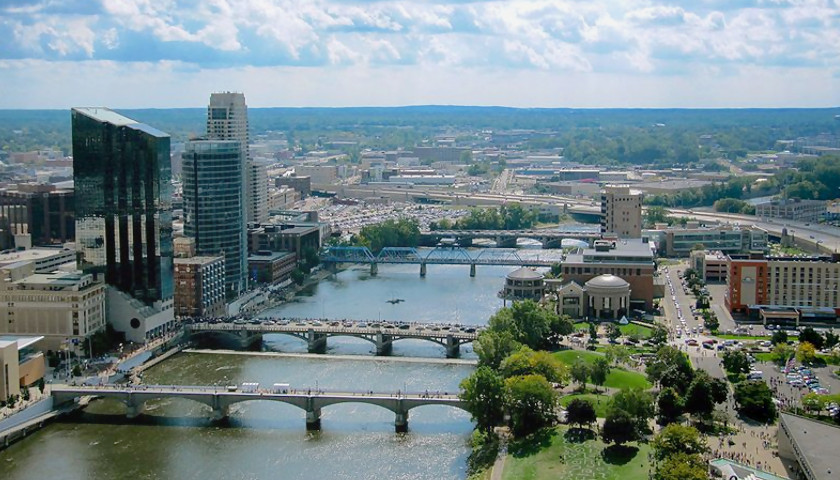by Scott McClallen
City leaders in Michigan are asking state legislators to adopt policy changes that will prevent 24 cities currently collecting local income taxes from losing up to $250 million next year.
Several mayors held a virtual press conference Monday organized by the Michigan Municipal League (MML), asking the GOP-led legislature to approve a plan with three components.
- Extend the exemption to the Open Meetings Act to allow local governmental bodies to continue to meet remotely beyond the end of 2020.
- Allow local cities one opportunity to collect local income taxes from workers employed within the city but forced to work remotely during the pandemic.
- Amend the relationship between the Headlee Amendment and Proposal A
COVID-19 and government restrictions on businesses have driven thousands of stores out of business, likely reducing property values and property tax revenues.
The plan would address “unintended interactions” between the Headlee Amendment, which limits taxes, and Proposal A, a 1994 tax and school-finance overhaul.
The plan would allow millage rates to adjust up and down depending on the relationship between property values and general inflation.
A millage rate could never increase above charter limits.
For parcels that do not change ownership, the maximum charter tax rates won’t increase by more than inflation.
The second part would change the rollback formula so that taxing authorities would benefit from property sales’ deferred growth, Tony Minghine, MML deputy executive director and chief operating officer, told The Center Square.
This would remove the “popped up” values from the Headlee millage rollback calculation, which currently negates growth.
“The idea wasn’t that you’d never get the benefit of the growth,” Minghine said. “The idea was that there’s this deferral of this growth, so you’d ‘catch up’ at some point. But because of how they constructed the rollback construction post-Proposal A, that was essentially negated in the math.”
Michigan State University Municipal Finance Professor Eric Scorsone warned that cities entered the COVID-19 pandemic carrying baggage from the Great Recession.
For example, Detroit didn’t declare bankruptcy until 2013 from the 2008 recession.
Similarly, Scorsone said local governments are looking at higher costs ranging from internet technology to cleaning costs.
“I think 2021 and 2022 are going to be some of the toughest times facing municipal governments, certainly since the Great Recession, perhaps even worse because there are long-term implications from this pandemic, which we’re only now beginning to really understand and will only become clear over the next few years,” Scorsone said.
The state is still looking at a $1 billion budget deficit in the fiscal 2022 year, which may result in revenue-sharing cuts to local governments.
That could result in cuts to police, fire and park departments, Grand Rapids Mayor Rosalynn Bliss said.
“For us, the… scale of the deficit is still yet-to-be-determined since people will still be filing their income taxes [for several weeks],” Bliss said.
– – –
Scott McClallen is a staff writer covering Michigan and Minnesota for The Center Square. A graduate of Hillsdale College, his work has appeared on Forbes.com and FEE.org.
Photo “Grand Rapids” by Rachel Kramer CC2.0.





